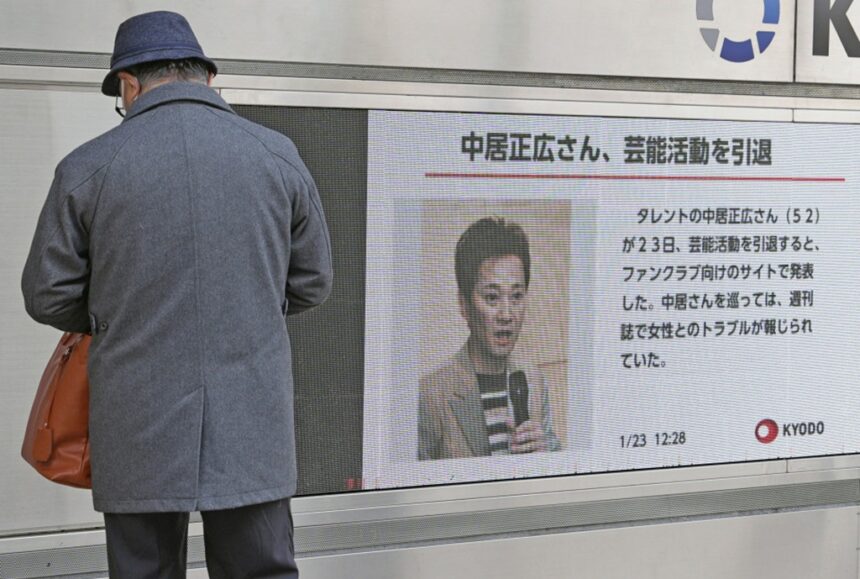Japan television host Masahiro Nakai, a well-known figure in the country’s entertainment world, has announced his retirement following a sexual assault allegation that has shaken the television industry.
The accusation against Nakai stems from claims that he sexually assaulted a woman during a 2023 dinner party hosted by Fuji Television staff.
In response to the controversy, several companies, including major advertisers, have withdrawn their commercials from Fuji Television. The network has also faced backlash for allegedly attempting to suppress the scandal.
Nakai has denied using any form of violence against the accuser and stated on January 9 that the issue had been “resolved” with her through a settlement. However, this settlement failed to calm public outrage.
In a Thursday statement on the social media site X, Nakai said he was “truly sorry for causing trouble and losses to so many people.”
“I’m really, really sorry for saying good-bye this way.”
His decision to step down comes just days after Fuji Television’s president, Koichi Minato, admitted the company was aware of the allegations well before they became public but chose not to disclose them.
After the scandal, corporate giants such as Nissan, Toyota, and Seven & I Holdings, the company behind 7-Eleven convenience stores, have pulled their advertisements from Fuji Television.
The network plans to create an independent committee to investigate the matter, while Nakai’s appearances have been removed from its programming.
Nakai first rose to fame in the 1990s as the leader of SMAP, a boy band that became one of Asia’s biggest musical acts. With over 50 hit singles and a popular weekly variety show, SMAP’s influence lasted until its disbandment in 2016.
After the group broke up, Nakai transitioned into a successful career as a television host, cementing his status as one of Japan’s wealthiest and most prominent celebrities.
The entertainment industry in Japan has been grappling with several high-profile cases of sexual misconduct. In 2023, allegations came to light that J-pop executive Johnny Kitagawa, who passed away in 2019, had abused hundreds of boys and young men over several decades.
His agency, Johnny & Associates, was also responsible for managing SMAP and various other boy bands.
Sexual Scandals in Japan
Japan has seen its share of high-profile sexual scandals, drawing intense media and public scrutiny. Many involve powerful figures in politics, business, media, and entertainment. Cases like these often expose long-standing issues, such as abuse of power and the reluctance of victims to come forward due to societal pressures.
The #MeToo movement in Japan gained traction after journalist Shiori Ito accused a well-known TV personality of rape, sparking national conversations about consent and victim rights. Despite the attention, cultural norms surrounding shame and honour often make it hard for survivors to speak out.
The legal system has also faced criticism for outdated definitions of consent and an overall lack of support for victims. These scandals often highlight gaps in accountability and raise questions about how institutions handle sexual misconduct.
The fallout can be massive for those involved, but it also sparks debates on how Japan can create safer spaces for everyone. Such discussions gradually push for change, but progress remains slow and complicated.
Related News:
Japan Meteorological Agency Issues a Megaquake Warning

Geoff Thomas is an award winning journalist known for his sharp insights and no-nonsense reporting style. Over the years he has worked for Reuters and the Canadian Press covering everything from political scandals to human interest stories. He brings a clear and direct approach to his work.














